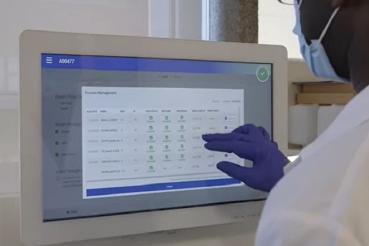Keeping our bodies and minds healthy is an ongoing process. Researchers at Rush University Medical Center have found that challenging the human brain with puzzles, games, reading and writing may keep the brain healthier and delay Alzheimer’s disease dementia onset by up to five years, according to results of a study recently published online in Neurology, the medical journal of the American Academy of Neurology.
“Similar to the way exercise keeps the body fit, certain activities like playing card games may keep the brain in better shape than other activities such as watching television,” said Robert S. Wilson, PhD, the study’s author. Wilson is also a neuropsychologist in the Rush Alzheimer's Disease Center at Rush University Medical Center, and a professor in the Department of Neurological Sciences at Rush Medical College.
“Exercising the mind can be done at any age to help keep your brain healthy,” Wilson added. “There’s no limit to when you can begin. We found that even those in their 80s can benefit from this type of mind exercise.”
The study followed participants in Rush’s ongoing Memory and Aging Project, which began in 1997 and includes people living in the community in greater Chicago. Those who enrolled were mostly white without known dementia, and all participants agreed to undergo annual clinical evaluations while alive and brain autopsy after their death.
For approximately seven years, the researchers followed 1,903 participants with an average age of 80 who had agreed to report how often they engaged in cognitively stimulating activities. All participants completed annual evaluations with cognitive tests to see if they had developed memory and thinking problems. At the beginning and each year, participants were asked to rate their frequency of participation in seven information-processing activities on a five-point scale.
Participants were asked about the frequency of reading, visiting a library, writing letters and playing games like checkers, puzzles or board games. The self-reported cognitive activity was averaged, and associated with lower risk of dementia and less rapid cognitive decline. Also, early life cognitive activity — in childhood (ages 6, 12), young adulthood (age 18) and middle age (age 40) — early life cognitive activity was the average of scores across these ages and was measured on a five-point scale along with current social activity and loneliness.
Of the 1,903 participants, 457 developed dementia. Among them, those who had the lowest activity scores had memory and thinking problems at the average age of 89 (which also was the average age for the group overall). Participants who had higher scores of activity were diagnosed with dementia at age 94 on average. The results were the same after adjusting for factors that could affect dementia risk such as education and gender. Brain tissue samples from the 695 participants who died during the study were tested after their deaths to look for markers of Alzheimer’s or related disorders, but these tests found no correlation with activity level.
"Our study shows that people who engage in more cognitively stimulating activities may be delaying the age at which they develop dementia," Wilson said. "It is important to note, after we accounted for late-life level of cognitive activity, neither education nor early-life cognitive activity were associated with the age at which a person developed Alzheimer's dementia. Our research suggests that the link between cognitive activity and the age at which a person developed dementia is mainly driven by the activities you do later in life."
Wilson notes that further research will be needed to determine if the results are consistent with the general population.
The study was funded by the National Institute on Aging.





